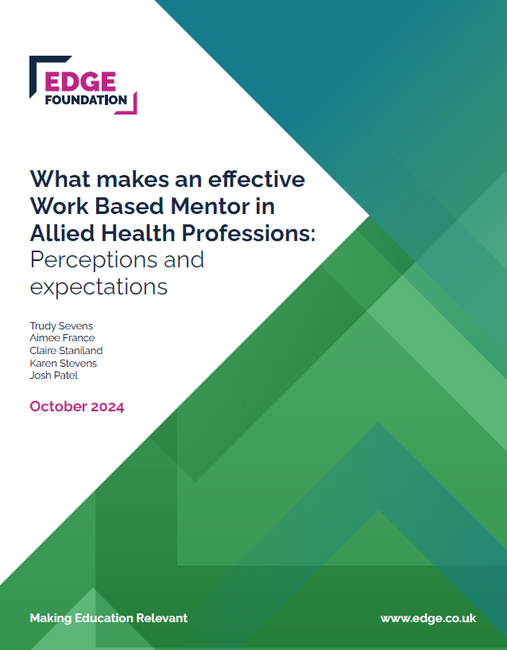Degree apprenticeships for the Allied Health Professions (AHP) are a relatively new concept. Consequently there is very little published literature relating to them and none that specifically focusses on work based mentors (WBM) supporting AHP apprentices. This research draws on semi-structured interviews with mentors from two AHP groups’ Work Based Mentors: physiotherapy and occupational therapy. The participants in this study were resoundingly positive about the role and the benefits it brings for the apprentice, mentor and wider communities. Key skills and attributes that were identified as beneficial to the role included being open, honest, person-centred, nurturing, supportive, patient and an advocate.

The Work based Mentors in this study indicated it was less about the mentor being clinically competent and more about being able to seek and facilitate learning opportunities for the apprentices. They also recognised the reciprocative value of team approaches to supporting apprentices, rather than it being one person’s sole understanding and responsibility.
“I think you've got to acknowledge that you're always learning yourself. So actually it's that acknowledgement that we're learning from each other, very much in this scenario”
The report recommends that earlier support and training may be required for Work Based Mentors to provide them with a deeper understanding of their roles and responsibilities and those of apprenticeships. There also should be recognition that WBM roles may change over time depending on the relationship and the learner’s needs. Learning from this project is transferable to wider apprenticeships and can inform national degree apprenticeship developments and mentor training and resource development.
Report written by
Trudy Sevens, Aimee France, Claire Staniland, Karen Stevens, Josh Patel

